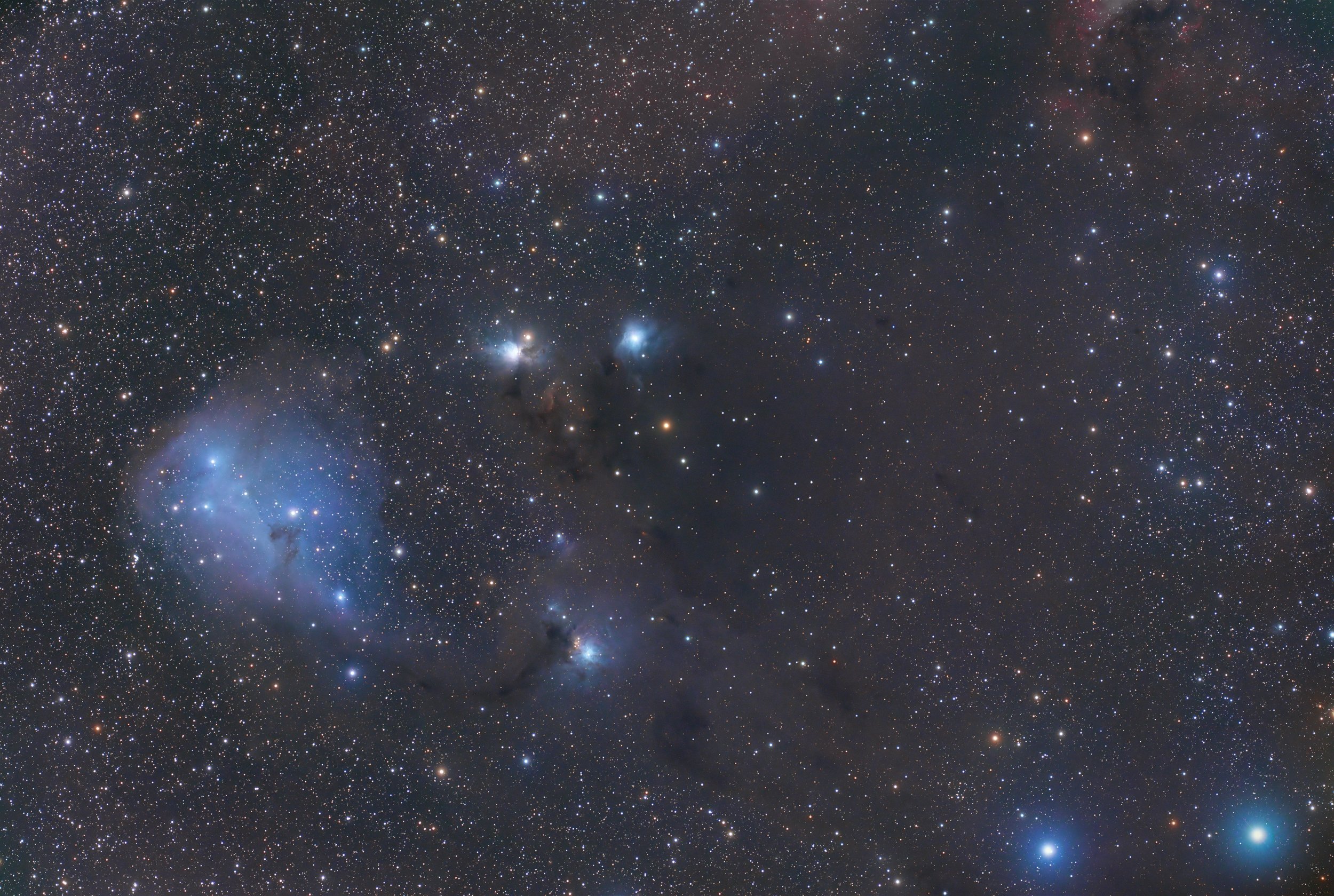
AAPOD2 Image Archives
M35
Image Description and Details :
16" f3.75 Dream Astrograph, FLI Proline 16803, Paramount MEFrames: 55x120" (1h 50')Image aquisition remotly by Cláudio Tenreiro, at Insight Observatory, New Mexico.Image processing: Ruben Barbosa.Messier 35 (M35) is a large open star cluster located in the northern constellation Gemini. The cluster consists of several hundred stars, of which 120 are brighter than magnitude 13. The central region has a density of 6.21 stars per cubic parsec. M35 is The only Messier Object located in Gemini
Copyright: Claúdio Tenreiro / Ruben Barbosa
IC2948 - The Running Chicken Heart
Image Description and Details :
* Image acquisition by: Insight Observatory (Franck Jobard at Deep Sky Chile). * Image processing: Ruben Barbosa 12.5" f/9 Quasar Ritchey Chretien, SBIG STL11000, Losmandy Titan Frames: Ha: 80x600" (13h 20'), OIII: 73x600" (12h 10') This new image shows the Running Chicken Nebula, a cloud of gas and newborn stars that lies around 6500 light-years away from us in the constellation of Centaurus (The Centaur). Officially called IC 2944, or the Lambda Centauri Nebula, its strange nickname comes from the bird-like shape of its brightest region. The star Lambda Centauri itself lies just outside the field of view.
Copyright: Insight Observatory (Franck Jobard) and Ruben Barbosa
The Gum 15 star formation region
Image Description and Details :
12.5" f/9 Quasar Ritchey Chretien, SBIG STL11000, Losmandy Tita9
Frames: Red: 10x600", Green: 9x600", Blue: 21x60", Lum: 74x600", total exposure: 16.1 horas
This richly detailed shows the star formation region Gum 15. This little-known object is located in the constellation of Vela (The Sails), some 3000 light-years from Earth. The glowing cloud is a stunning example of an HII region.
Copyright: Insight Observatory (Franck Jobard by Deep Sky Chile) / Ruben Barbosa
Christmas Tree
Image Description and Details :
ASA Astrosysteme ASA20NG-OK3 f 3.6, FLI Proline 16803
Frames: Red: 26x300" + Green: 23x600" + Blue: 26x300" + Lum: 60x600" + H-Alpha: 35x1200"
Total: 29.8 hours
Copyright Information: Chiliescope / Ruben Barbosa
Large Magellanic Cloud
The Large Magellanic Cloud (LMC) is a satellite galaxy of the Milky Way. At a distance of 163,000 light-years, the LMC is the third-closest galaxy to the Milky Way, after the Sagittarius Dwarf Spheroidal and the putative Canis Major Dwarf Galaxy, lying close to the Galactic Center. The LMC has a diameter of about 14,000 light-years based on readily visible stars and a mass of approximately 10 billion solar masses, making it roughly 1/100 as massive as the Milky Way.
With a declination of about −70°, the LMC is visible as a faint "cloud" only in the Southern Celestial Hemisphere and from latitudes south of 20° N, straddling the border between the constellations of Dorado and Mensa, and appears longer than 20 times the Moon's diameter (about 10° across) from dark sites away from light pollution.
NGC1999
Imaging telescope or lens:Astro-Physics RH305
Imaging camera:SBIG STXL 16200
Mount:Planewave L-500 L-500
Software:Maxim DL, Gimp
Frames:
Blue: 11x600"
Green: 12x600"
H-Alpha: 95x600"
Red: 12x600"
Integration: 21.7 hours
Copyright: Ruben Barbosa









